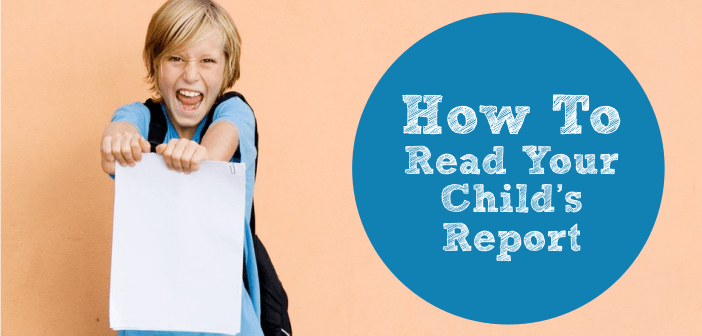A Guest post by Michael Grose
Could try harder . . . always does her best . . . lacks concentration. . . easily distracted . . . a pleasure to teach . . . Do these comments, taken from a batch of student reports sound familiar?
Student reports bring mixed feelings for parents. Pleasure and pride if they are performing well but considerable angst when children are not progressing as you hoped.
Reports can mean anxious times for children too. Will my parents be disappointed or proud? This is the main concern of most children. Kids of all ages take their cues from their parents, so your reaction to their school report can affect the way they see themselves as learners and as people.
Before you rip open the sealed envelope containing the report do a little self-check to see if you are in the right frame of mind:
1 Are your expectations for your son or daughter realistic and in line with their ability?
Expectations are tricky. If they are too high then kids can be turned off learning. Too low and there is nothing to strive for. Pitch your expectations in line with your child’s abilities. A quick check of your child’s last report cards may provide you with a good yardstick.
2 Do you believe that children learn at different rates?
There are slow bloomers, late developers and steady-as-you-go kids in every classroom, so avoid comparing your child to siblings, your friends’ children and even yourself when you were a child. Instead look for individual progress.
3 Are you willing to safeguard your child’s self-esteem rather than deflate it?
Self-confidence is a pre-requisite for learning, so be prepared to be as positive and encouraging as possible. School reports come in different formats. Some are prescriptive while some use grading systems such as A, B, C, etc. with room for teacher comments. Regardless of the format school reports should provide you with an idea of your child’s progress in all subject areas, their attitude and social development.
Here are some ideas to consider when you open your child’s report:
Focus on strengths. Do you look for strengths or weaknesses first? The challenge is to focus on strengths even if they are not in the traditional 3Rs or core subjects.
Take into account your child’s effort and attitude to learning. If the report indicates that effort is below standard, then you have something to work on. If your child is putting in the required effort, then you cannot ask any more than that, regardless of the grading.
Broaden your focus away from academic performance to form a picture of your child’s progress as a member of a social setting. How your child gets along with his or her peers will influence his happiness and wellbeing, as well as give an indicator to his future. The skills of independence and co-operation are highly valued by employers so don’t dismiss these as unimportant.
Take note of student self-assessment. Kids are generally very honest and will give a realistic assessment of their progress. They are generally very perceptive so take note of their opinions.
Discuss the report with your son or daughter. Talk about strengths first before looking at areas that need improvement. Ask for their opinion about how they performed and discuss their concerns.
After reports are read and discussed celebrate your child’s efforts with a special activity or treat. In this way you will recognise progress and remind them that the holidays are just around the corner when they can forget about assessment, tests and reports for a while.
 Michael Grose is one of Australia’s leading parenting experts and runs the excellent Parenting Ideas Club. Their valuable forums, courses and articles help thousands of families every day.
Michael Grose is one of Australia’s leading parenting experts and runs the excellent Parenting Ideas Club. Their valuable forums, courses and articles help thousands of families every day.
Great parenting starts here – find out more

